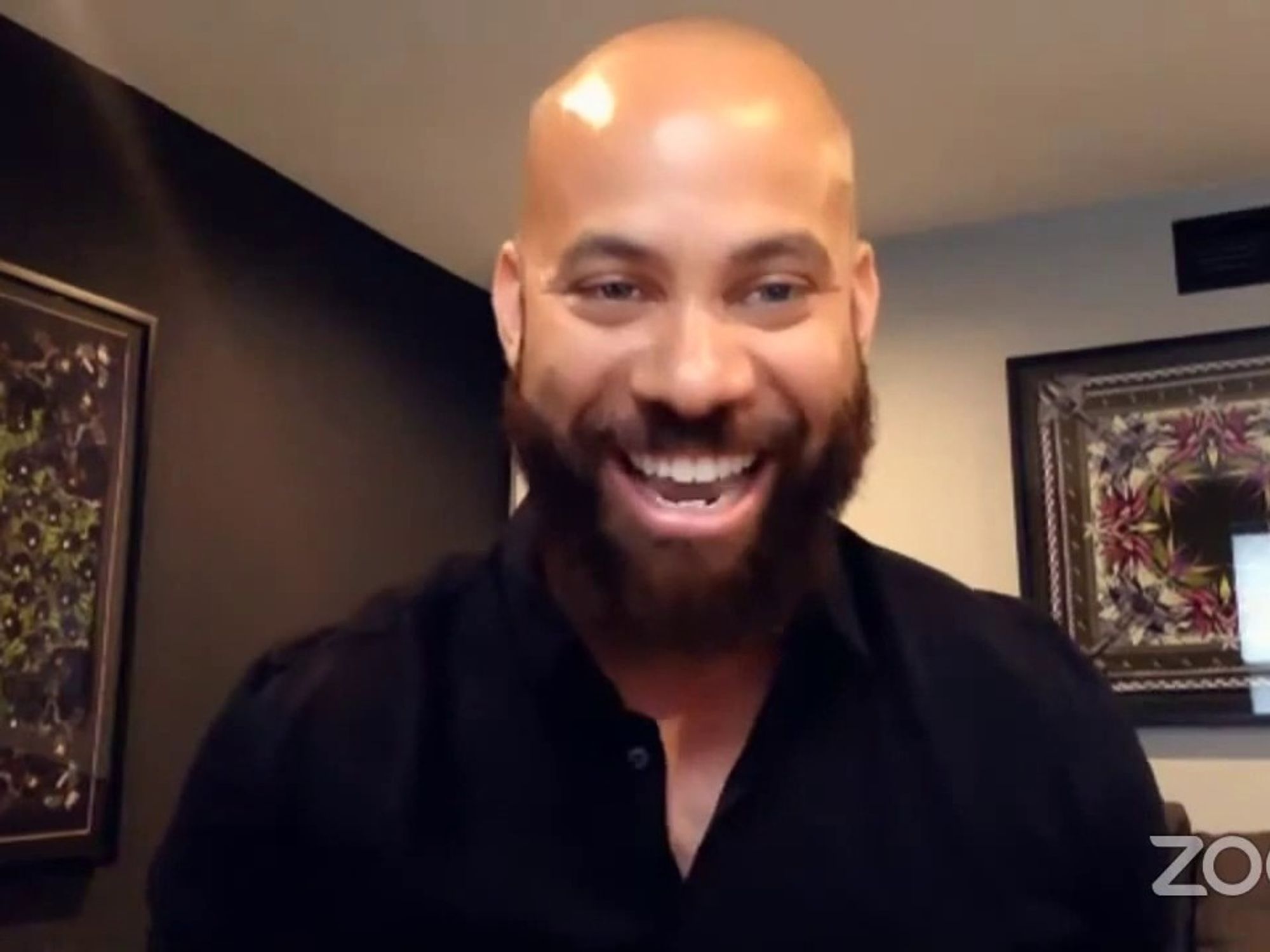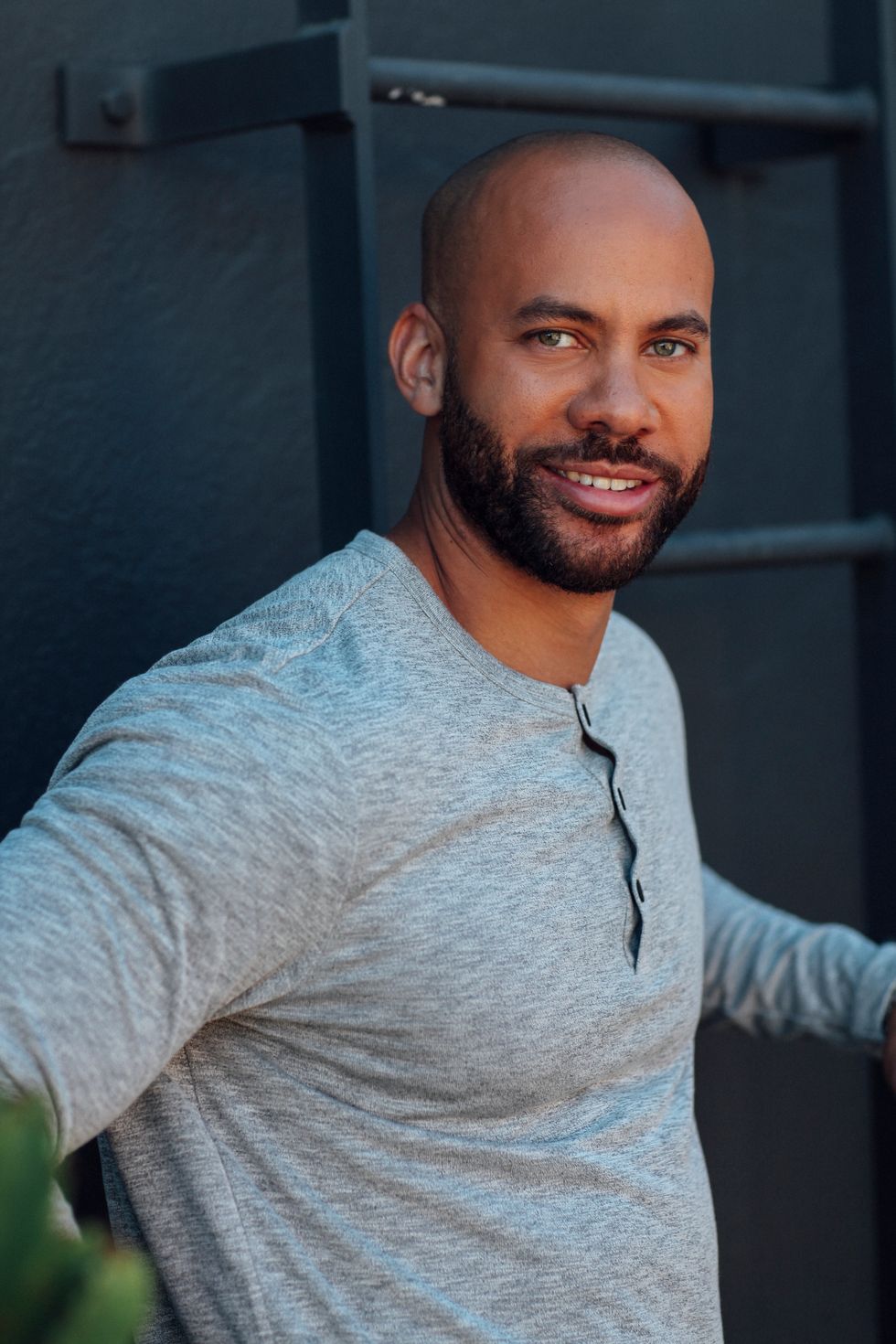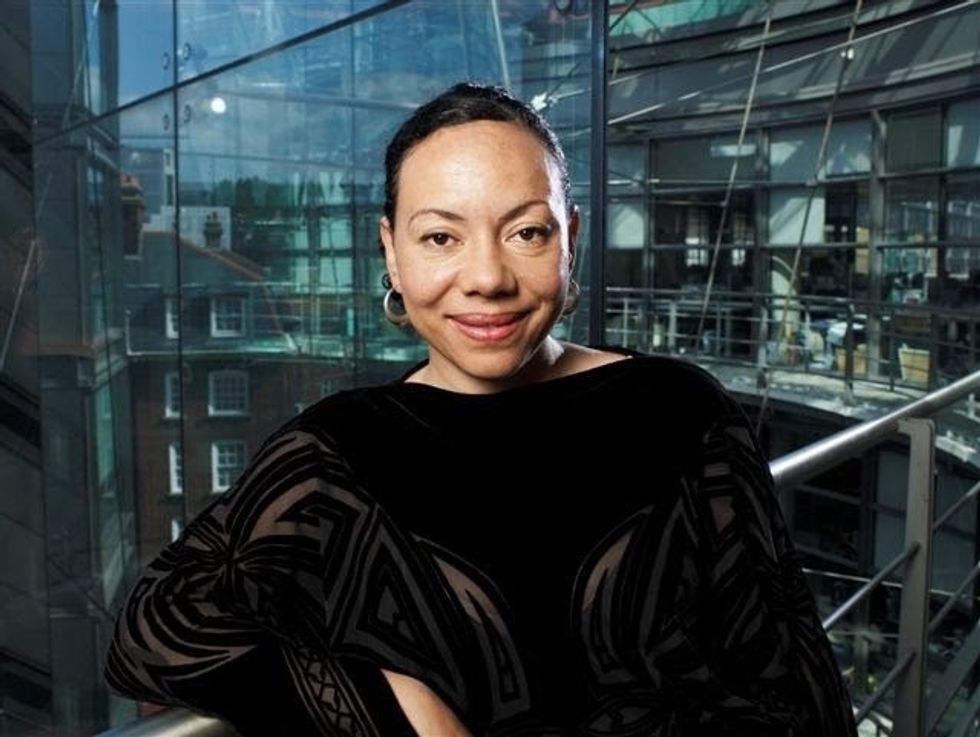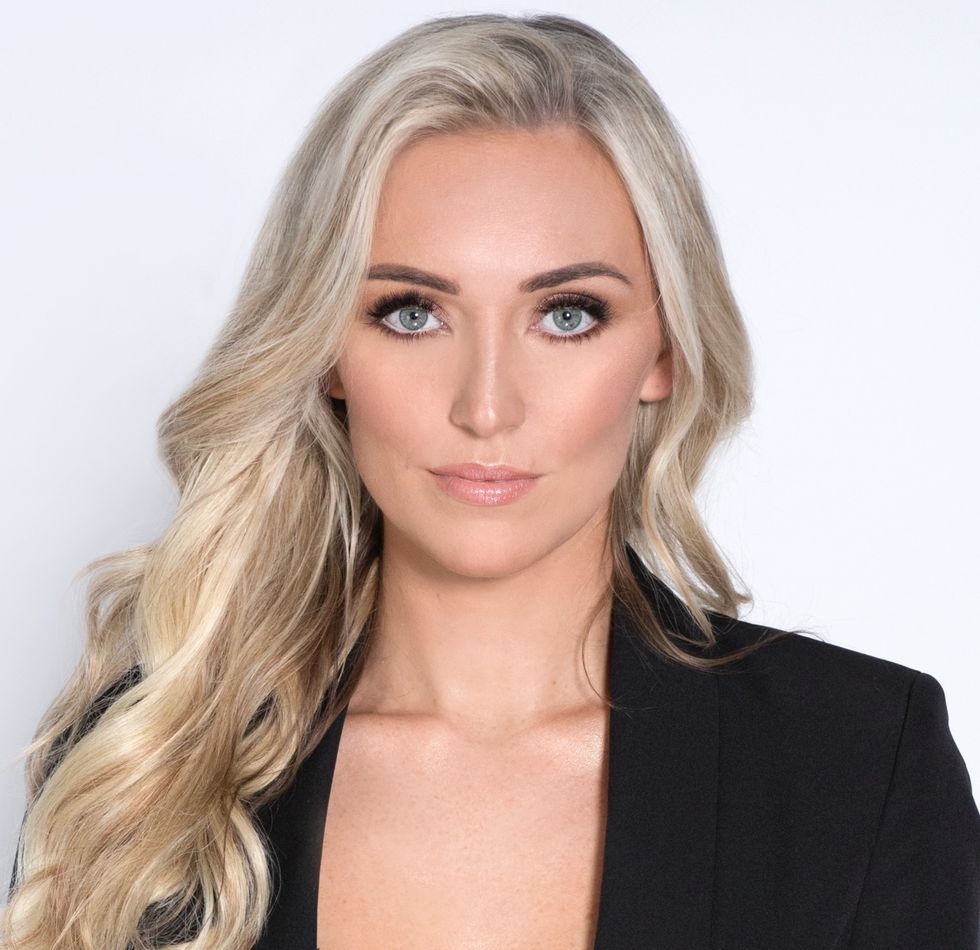Watch: A Roundtable on Real Ways to Increase Diversity in the Workplace
Annie Burford is dot.LA's director of events. She's an event marketing pro with over ten years of experience producing innovative corporate events, activations and summits for tech startups to Fortune 500 companies. Annie has produced over 200 programs in Los Angeles, San Francisco and New York City working most recently for a China-based investment bank heading the CEC Capital Tech & Media Summit, formally the Siemer Summit.

"The time for inaction is over."
Such was the through-line in dot.LA's Thursday panel discussion on "Measurably Increasing Diversity in the Workplace."
Joining dot.LA host Kelly O'Grady was Oona King, VP of diversity, equity & inclusion (DEI) at Snap and a member of the UK House of Lords, and Kobie Fuller, partner at Upfront Ventures. The conversation centered on what organizations must do to ensure that this moment of acute awareness of the societal issues around DEI does not go to waste.
"I am grateful that white people have woken up," said King, who has also worked in diversity and inclusion at the UK's Channel 4 and YouTube. "But my gratitude will turn back to rage if they go back to sleep."
Four key points of the discussion are summarized below. You can view the full conversation in the video embedded in this article.
Diversity and Inclusion Must Be Embedded in an Organization's Culture
"Separate is never equal," King said. DEI cannot be a sideshow effort; it must be "built into the heart of what the business is doing."
That means setting clear goals that strike a balance between being audacious and achievable. And the goals must not be vague.
For example, King highlighted how Snap made one of its core values more concrete: rather than focusing on the importance of employees being "kind," the company went deeper. They added courage as a sub-attribute of kindness, thereby providing a clear parameter to show employees the importance of speaking up for inclusion.
Fuller emphasized that the culture of DEI must start at the top.
"Diverse leaders will disproportionately impact the diversity of people that come after them," he said. Companies must, therefore, prioritize DEI on their boards and the C-suite.
And while collecting DEI metrics is a necessary prerequisite to building the right culture, it is far from enough on its own.
Include Some Form of the 'Rooney Rule' in the Hiring Process
Fuller and King both pushed back against the common excuse that "we couldn't find anybody" to ensure a diverse candidate pool.
Often, the problem is that firms prioritize speed over inclusion, King said. They must instead understand that inclusive hiring is a long-term investment, and may require looking in new places, or rethinking the specific talents and skills being targeted.
You have to "look again, look harder, look further, look elsewhere," she implored.
King also cited data published by the Harvard Business Review showing that incorporating more than one minority candidate on a shortlist drastically increases inclusive hiring. She suggested the coronavirus pandemic is an opportune time for organizations to reevaluate and improve their hiring practices.
Fuller sympathized that startups face unique challenges in being inclusive, given their small size. But that this also presents an opportunity to confront the biases, assumptions and micro-aggressions that can lead to toxic practices, and to actively reject them from the start.
Representation = Hiring + Promotion - Attrition
"If you're only focused on the hiring, it's like filling up the bath with the plug out; you'll never increase your representation," King said.
"You have to solve this problem at all levels," Fuller added, explaining that it is incumbent on firms to ensure that they have black voices layered throughout their organization, and that doing so makes business sense to boot.
One crucial piece for incorporating DEI beyond the hiring process is giving employees the skills and training to be allies.
"The point about racism is it doesn't matter if white people think they like black people. It's a system, and it requires a systemic understanding of the barriers that are facing underrepresented groups," King explained. She added that this also applies to representation by gender, sexual orientation, disability, age and other forms by which people may be excluded.
"Inclusive leadership requires giving people the ability to see inequity," she said. "These last weeks have shown us that people do not see the same thing."
Helping people to see and understand the systemic impact on people who don't look like them will show employees what inclusivity requires, and enable them to accept the responsibility to bring about the necessary change.
Tech companies, in particular, have the power to reach billions of people. They should therefore approach product development with an eye toward inclusivity, King said, noting that this is an area that is often overlooked.
Bringing DEI into products means striving for inclusivity among the people developing the product and in the focus groups that test products and give feedback, and thinking from the start about how to ensure that underrepresented groups will use the product and receive support.
"I'm optimistic people will drive change and real action will take place. But it'll take time," Fuller said. "This'll take focused effort, investment, and doing things you're uncomfortable doing."
King called this moment the "chance of a lifetime."
"We're relying on you to speak up."
Strategy Session: How To Measurably Increase Diversity in the Workplacewww.youtube.com

Kobie Fuller, Partner, Upfront Ventures
Kobie joined Upfront in June 2016, bringing deep expertise in enterprise SaaS and emerging technologies including VR and AR. Over his career he has invested early in notable companies including Exact Target (sold to Salesforce for $2.5B) and Oculus (sold to Facebook for $2B). Prior to Upfront, Kobie was an investor at Accel and, earlier, was the chief marketing officer at L.A.-based REVOLVE, one of the largest global fashion e-commerce players. Earlier in his career, Kobie helped found OpenView Venture Partners and was an investor at Insight Venture Partners. Kobie graduated from Harvard College.

Oona King, VP of Diversity, Equity & Inclusion at Snap Inc.
Oona King is the VP of diversity, equity & inclusion at Snap Inc. Previously, Oona was Google's director of diversity strategy, YouTube's director of diverse marketing, and before that chief diversity officer for British broadcaster Channel 4. Oona is a member of the House of Lords (a life-time appointment as Baroness King in January 2011), and former senior policy advisor & speechwriter to the prime minister at 10 Downing Street.
Oona became a member of the House of Commons at 29, the second woman of color, and 200th woman of any color elected to the British Parliament. She became parliamentary private secretary to the minister for e-commerce, and secretary of state for trade and industry. Oona was voted by other MPs as "the MP most likely to change society." In the Lords, Oona's front bench roles included shadow education minister, shadow minister for the digital economy, and shadow minister for equalities.

Chief Host & Correspondent and Head of Video Strategy at dot.LA
Chief Host & Correspondent and Head of Video Strategy at dot.LA
Kelly O'Grady is dot.LA's chief host & correspondent. Kelly serves as dot.LA's on-air talent, and is responsible for designing and executing all video efforts. A former management consultant for McKinsey, and TV reporter for NESN, New England's premier sports network, she also served on Disney's Corporate Strategy team, focusing on M&A and the company's direct-to-consumer streaming efforts. Kelly holds a bachelor's degree from Harvard College and an MBA from Harvard Business School. A Boston native, Kelly spent a year as Miss Massachusetts USA, and can be found supporting her beloved Patriots every Sunday come football season.
- How Can L.A. Tech Promote More Diversity in Its Ranks? - dot.LA ›
- Bloomberg's Emily Chang on Solving Tech's Diversity Problem ... ›
- Valence Funding Network Intends to Boost Black Startups - dot.LA ›
- How Can L.A. Tech Promote More Diversity in Its Ranks? - dot.LA ›
- Which Tech Workers Send Money Back Home? ›
- Kara Nortman Named Upfront Ventures' Co-Managing Partner - dot.LA ›
- Mark Suster of Upfront Ventures on VC's Primary Job - dot.LA ›
- 'VC is Like a Pimple' - dot.LA ›
- Pool, Gym? Check. Electric Car? - dot.LA ›
- Streaming for the Arab Diaspora - dot.LA ›
- A Startup's Stark COVID Pivot - dot.LA ›
- Making Audio Sharable - dot.LA ›
- A 3D Revolution - dot.LA ›
- Podcast Nation - dot.LA ›
- COVID Crashes Thanksgiving Holiday - dot.LA ›
- Can a Former Wolf of Wall Street Partner Make the Next Big Social Network? - dot.LA ›
- How to Establish Core Values at a Startup - dot.LA ›
- Sinai Ventures' Zach White on Secondary Shares, LA's Future - dot.LA ›
- How to Embed Your Audience in Your Product Teams - dot.LA ›
- Urban Tech LA To Host 4th Annual Diversity Conference - dot.LA ›
- Diversity and Inclusion in the Workplace at dot.LA Summit - dot.LA ›
- 2022 Will Be the Year Tech Equity Moves Beyond Gesture - dot.LA ›
- GAAD Highlights Tech Accessibility for Disabled Users - dot.LA ›
- OpenView’s Blake Bartlett on Creating Product-Led Growth - dot.LA ›
Annie Burford is dot.LA's director of events. She's an event marketing pro with over ten years of experience producing innovative corporate events, activations and summits for tech startups to Fortune 500 companies. Annie has produced over 200 programs in Los Angeles, San Francisco and New York City working most recently for a China-based investment bank heading the CEC Capital Tech & Media Summit, formally the Siemer Summit.
Sam primarily covers entertainment and media for dot.LA. Previously he was Marjorie Deane Fellow at The Economist, where he wrote for the business and finance sections of the print edition. He has also worked at the XPRIZE Foundation, U.S. Government Accountability Office, KCRW, and MLB Advanced Media (now Disney Streaming Services). He holds an MBA from UCLA Anderson, an MPP from UCLA Luskin and a BA in History from University of Michigan. Email him at samblake@dot.LA and find him on Twitter @hisamblake



 Image Source: JetZero
Image Source: JetZero
